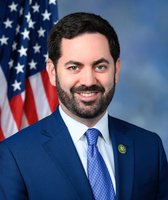Stand up for the facts!
Our only agenda is to publish the truth so you can be an informed participant in democracy.
We need your help.
I would like to contribute

Republican Ron Johnson attacked Democratic Sen. Russ Feingold on Medicare in this mailing.
During the debate over health care reform, Republicans often complained the Democratic plan would cut Medicare. They are now repeating those attacks in campaign ads against many Democratic candidates, targeting older voters who may be worried their Medicare benefits will be harmed.
In Florida, the conservative 60-Plus Association took aim at Democratic members of Congress Allen Boyd, Alan Grayson and Suzanne Kosmas. The ad said the new health care law "will cut $500 billion from Medicare. That will hurt the quality of our care."
In Pennsylvania, the Republican-controlled group Crossroads GPS attacked Democratic Senate candidate Joe Sestak, saying he "voted to gut Medicare ... reducing benefits for 854,489 seniors."
In California, Crossroads GPS said Barbara Boxer "voted to cut spending on Medicare benefits by $500 billion, cuts so costly to hospitals and nursing homes that they could stop taking Medicare altogether."
PolitiFact found each of those attacks to be Barely True. In these attacks and many others, PolitiFact found the ads have taken a small amount of truth -- the Democratic incumbent's vote in favor of the health care law -- and exaggerated the impact.
The $500 billion in "cuts" is really the reduction in the future growth of Medicare over 10 years, and it's intended to make the program more efficient. The law also includes new benefits for Medicare that would improve quality.
Basic benefits stay intact for all Medicare recipients. The Pennsylvania ad is talking about enrollees in Medicare Advantage, a program that was supposed to save the government money by letting private insurers compete to offer Medicare plans. Instead, the program ended up being even more expensive than regular Medicare. The new law forbids the cost overruns. It's possible enrollees in Medicare Advantage would lose some extras, but not basic Medicare coverage.
In the California ad, we concluded the warnings about hospitals and nursing homes refusing Medicare were a stretch because experts told us that past decisions by Congress and hospitals indicate that would be extremely unlikely.
Republicans aren't the only ones trying senior scare tactics.
Democrats have repeatedly claimed Republicans want to "privatize Social Security" -- and have earned their share of Barely True -- and even Pants on Fire -- ratings. (We documented that trend in last month's story "Democratic exaggerations about Privatizing Social Security.")
We have also seen a few instances when Democrats have attacked Republicans on Medicare, usually alleging that Republicans want to privatize Medicare along with Social Security. (We've also written an extended report about Democrats distorting Republican positions on privatizing Social Security.) But most ads about Medicare this year are the other way around, with Republicans attacking Democrats.
That's a new twist, because in years past Medicare has been an issue Democrats win, said Larry Sabato, director of the University of Virginia's Center for Politics.
"The new Obama health care plan gives Republicans openings on one of their most durable vulnerabilities," he said. "Democrats always go after Republicans on Medicare, and it often works. Why not neutralize and short-circuit the attack by getting in the first licks?"
The ads take a kernel of truth -- that health care reform attempts to slow the rate of Medicare spending -- and turn it into falsehood, said Jonathan Oberlander, a professor who studies Medicare at the University of North Carolina at Chapel Hill.
"On average, the law is going to be good for most Medicare beneficiaries," Oberlander said. "It's quite hard to get through the mythology and the fear that has been built up around this."
Those improvements include more coverage for prescription drugs, free preventive services, and increased payments for primary care physicians, he said. But most of those benefits don't begin until 2011.
The ads have resonated with many voters because polls show that the public is still confused about what's in the health care law. The nonpartisan Kaiser Family Foundation last month found that that 53 percent of the public said they were confused about the law. For seniors, the numbers were higher: Six in 10 seniors said they feel "disappointed" and "confused" about the health reform law, and about four in 10 said they feel "angry." Three in 10 seniors believe the law will allow government panels to make decisions about end-of-life care, often referred to as "death panels." The law does not include such a provision.
Furthermore, seniors were more aware of the negative aspects of the bill than the positive aspects, Kaiser reported.
That has worried advocates for seniors. "It's a transparent attempt to scare seniors, but the polls suggest the scare campaign is getting through," said John Rother, the national policy director for the AARP, a seniors advocacy group that supports many provisions of the health care law. "Unfortunately, it's easier to scare people than to reassure them."
And while the ads find fertile ground in seniors' fears that they may have their benefits cut, neither side is talking much about the difficult decisions that need to be made about the health program. The growth in Medicare spending is one of the largest drivers of federal budget deficits in the coming decades. Obama has said one of his chief goals with health care reform is to "bend the cost curve" downward to make future deficits smaller.
Oberlander said that Republicans often supported measures to reduce Medicare spending during the administrations of Ronald Reagan, George H.W. Bush, and Bill Clinton. But the recent ads criticizing Obama's plan break with that conservative history.
"Maybe right now the glare of political opportunity is too great," he said. "There's not a lot of precedent for it, that's for sure."
Rother said Republicans have few ideas for reducing Medicare costs, other than a plan from Rep. Paul Ryan, R-Wis., that would eventually transition Medicare to a voucher system for buying private insurance. But Rother said Obama would almost certainly veto such a plan if it passed the Congress.
"He's not going to sign anything like that, and I don't think they could get it through the Senate. It would face a filibuster," Rother said. The recent ads about Medicare "are not so much about passing legislation as they are about building a political base and tying to get more Republicans elected."
Our Sources
See individual fact-checks for complete sources
Interview with Larry Sabato of the University of Virginia
Interview with Jonathan Oberlander of the University of North Carolina at Chapel Hill
Interview with John Rother of the AARP
The New York Times, More Turmoil Expected in This Year"s Medicare Signup, Oct. 1, 2010
Kaiser Family Foundation, Kaiser Health Tracking Poll -- September 2010
Rep. Paul Ryan, The Roadmap Plan: Health Security





















































